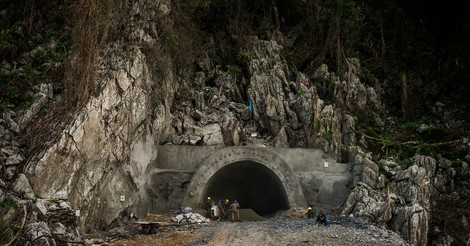Your podcast discovery platform
Curious minds select the most fascinating podcasts from around the world. Discover hand-piqd audio recommendations on your favorite topics.

piqer for: Globalization and politics Global finds
Luis BARRUETO is a journalist from Guatemala. Studied business and finance journalism at Aarhus University in Denmark and City University London.
Will China's "One Belt, One Road" Iniatiative Reshape World Order?
As the US turns inward, China is now not only the emerging world's top economic power, it has a plan to lead a new kind of globalization.
The initiative, called "One Belt, One Road" (OBOR), is China's strategy to invest more than US$1 trillion in infrastructure, forge alliances, and open markets for Chinese products, spanning more than 60 countries. In The New York Times, Jane Perlez and Yufan Huang present it as a kind of Marshall Plan, America's postwar reconstruction effort, which aimed at extending aid and securing alliances in Europe. And while many Western observers have taken a cautious approach to the initiative, the authors say, it has become impossible to ignore China's push to remake global trade in its own terms; besides OBOR, China is also leading the Regional Comprehensive Economic Partnership trade negotiations, comprising 16 Asian countries.
The Brookings Institution's Joshua Meltzer argues that, "in addition to increasing economic interdependence between China and the region, [OBOR] could create new barriers to U.S. exports and investment by exporting Chinese standards". His colleague Kadira Pethiyagoda, meanwhile, says that it "signals tectonic shifts in the global order toward not only a more multipolar world, but a more multicultural international system".
The plan is not without risks. The Economist says the project's ambitions often contradict each other, that there is infighting between most institutions involved, and that China is finding it hard to identify profitable projects in many of the involved countries. But while there are persistent challenges — also outlined in The New York Times' piece — China's President Xi Jinping is determined to push ahead with it. If successful, it will reshape the global system as we know it.
